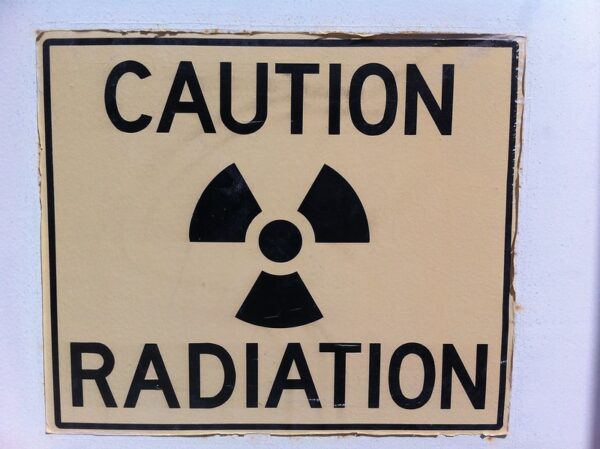
Eli Lilly’s scope in cancer is expanding to radiopharmaceuticals with the $1.4 billion acquisition of Point Biopharma Global, a company in late-stage clinical development with two programs, one of which could challenge a fast growing product from Novartis.
Per deal terms announced Tuesday, Lilly will pay $12.50 cash for each Point share, representing an 87.4% premium to Monday’s closing stock price. The acquisition has been approved by the boards of directors of both Indianapolis-based companies, which expect to close the deal near the end of this year.

With the Rise of AI, What IP Disputes in Healthcare Are Likely to Emerge?
Munck Wilson Mandala Partner Greg Howison shared his perspective on some of the legal ramifications around AI, IP, connected devices and the data they generate, in response to emailed questions.
Radiopharmaceuticals are targeted therapies that deliver radioactive particles to cancer cells while sparing healthy tissue. The targeting ability of the therapy comes from a ligand that binds to a protein on the surface of a cancer cell. A radiopharmaceutical is made by attaching this ligand to the radioactive particle.
Point therapeutic candidate PNT2002 delivers the beta-emitting radioisotope lutetium-177 by targeting PSMA, a protein overexpressed on prostate cancer cells but less abundant on healthy tissues. The Phase 3 clinical trial for this Point radiopharmaceutical is expected to report data in the current quarter. Point has also reached Phase 3 testing with PNT2003, which delivers lutetium-177 by binding to the somatostatin receptor (SSTR). This radiopharmaceutical is a potential treatment for gastroenteropancreatic neuroendocrine tumors (GEP-NETs), a rare type of gut cancer. Global rights to both therapies, excluding certain Asian markets, were licensed to Lantheus last year for $250 million up front and potentially $1.3 billion in milestone payments. The Point pipeline also includes five other programs in earlier stages of development.
“We are excited by the potential of this emerging modality and see the acquisition of Point as the beginning of our investment in developing multiple meaningful radioligand medicines for hard-to-treat cancers, as we have done in small molecule and biologic oncology drug discovery and development,” Jacob Van Naarden, president of Lilly’s oncology unit Loxo@Lilly, said in a prepared statement.
Point and other radiopharmaceutical companies are following in the footsteps of Novartis, whose Lutathera won FDA approval in 2018 for GEP-NETS, and Pluvicto, which was approved last year for treating prostate cancer that has advanced despite treatment with hormone therapies and chemotherapy. Prostate cancer is the much larger market, and the need for additional treatments for advanced cases of this cancer is reflected in the growing sales of Pluvicto, which tallied $271 million in revenue in 2022 and $451 million in the first half of this year. However, Pluvicto’s commercialization has been hampered by Novartis’s inability to make enough of the therapy. The pharmaceutical giant had been producing Pluvicto at a single plant in Italy. Batches of the radiopharmaceutical have only a five-day window to reach patients. Those limitations have led to Pluvicto shortages.
In March, Novartis announced it would pause the acceptance of new patients for Pluvicto until it secured more supply. In April, the FDA approved a Novartis site in Millburn, New Jersey, for U.S. commercial production of the therapy, adding to the supply provided by the Italy site. Novartis is further increasing its manufacturing capacity with new sites in Indianapolis and Spain. The company has said all of the sites together will enable it to reach an expected annual capacity of at least 250,000 doses.
In a note sent to investors on Tuesday, William Blair analyst Andy Hsieh wrote that the Point acquisition is an indication of Lilly’s bullish view of the radiopharmaceutical industry, with a premium placed on pure-play companies with ownership of the supply chain for these products. Point operates a radiopharmaceuticals R&D site in Toronto and a 180,000 square foot manufacturing facility in Indianapolis. Hsieh also noted that the deal comes ahead of the expected readout of data from PNT2002’s pivotal prostate cancer study, named SPLASH.
“Given the timing, we also believe that Lilly has done a great deal of diligence and concluded that the Phase 3 SPLASH trial has a reasonable chance to produce not only positive but also competitive results,” Hsieh said.
Point was founded as Point Theranostics in 2019, changing its name later that year to Point Biopharma. The company went public in 2021 via a SPAC merger that infused it with $286.7 million.
Research progress with radiopharmaceuticals has sparked investor interest in the field. Last month, RayzeBio upsized its IPO, raising $311 million as it continues pivotal testing of a lead program that could be a more potent GEP-NETs treatment than Novartis’s Lutathera. That deal followed a $175 million Series B financing raised by Mariana Oncology, a biotech preparing to enter the clinic next year with a small cell lung cancer radiopharmaceutical supported by the company’s own manufacturing capabilities. New startups are also joining the radiopharmaceuticals field. Abdera Therapeutics emerged from stealth earlier this year with $142 million and a lead radiopharmaceuticals candidate on track to enter the clinic for small cell lung cancer.
Photo by Flickr user John Jones via a Creative Commons license














